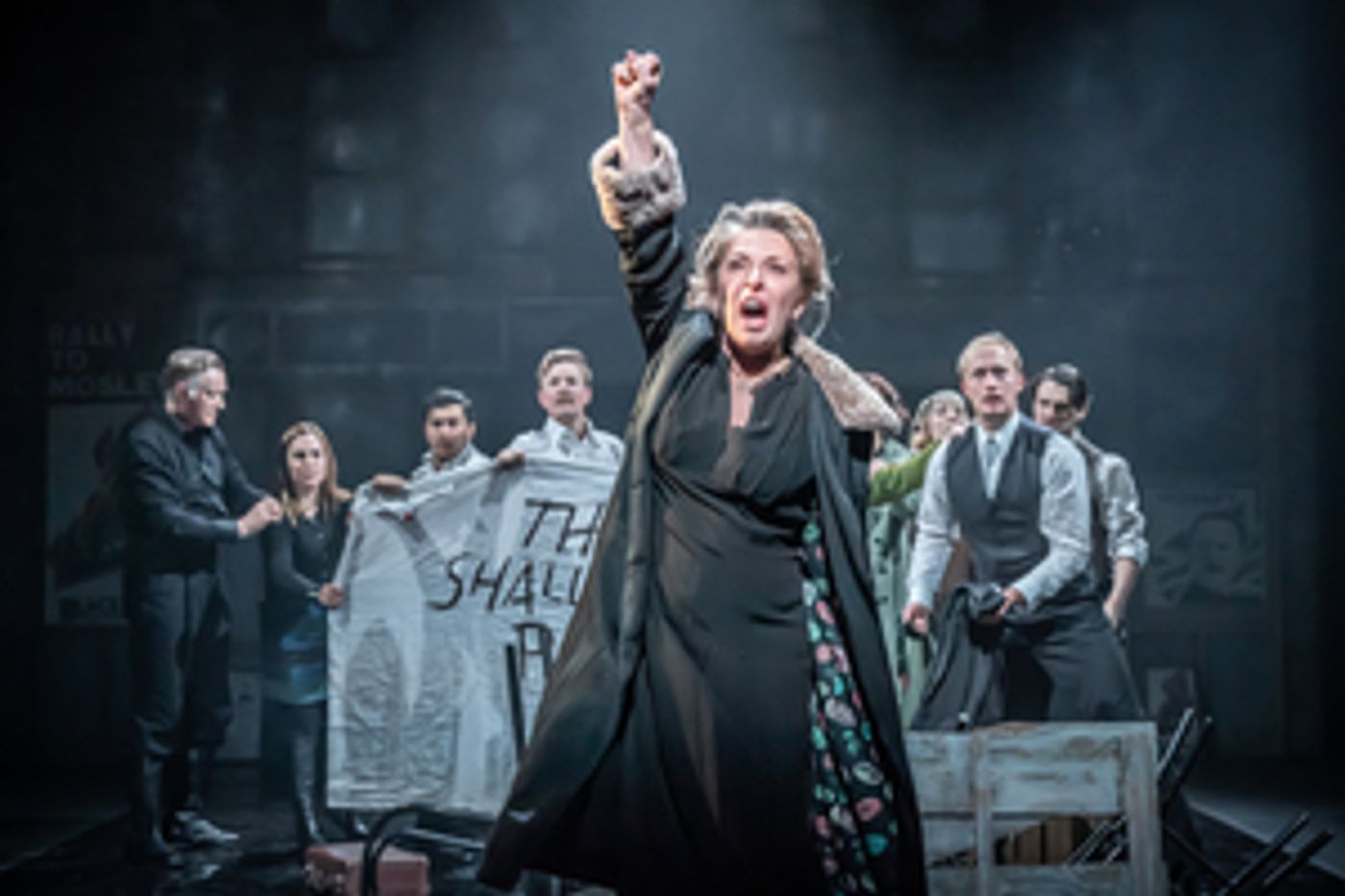Review: THE MERCHANT OF VENICE 1936, Watford Palace Theatre
A Merchant set in the 1930s, but very much with lessons for today

 Or, more accurately, The Merchant Of Whitechapel.
Or, more accurately, The Merchant Of Whitechapel.
Tracy-Ann Oberman and Brigid Larmour take one of Shakespeare's most compelling and problematic plays and give it a context that foregrounds its antisemitism by locating it within a familiar environment.
Gone is talk of The Rialto and other time and place-specific references that might lend a comforting distance to the audience, and in comes Cable Street, pawnbrokers in the East End and, most tellingly, 1930s British Fascism. Instead of exotic Italian medieval noblemen casually using racist epithets, it's the bobby on the beat, the posh boys in the restaurant, the judge chumming along with the lawyers in the court - people like us. It's a reminder that antisemitism doesn't go away - it may sometimes retreat to the shadows to regather its strength, but it'll be back and it'll need resisting.
Not everything works. Tracy-Ann Oberman's Shylock, positioned as one of a number of the Jewish women active in finance at the time, delivers the famous set piece speeches well, but the gender-flipping doesn't quite map. When she reports that Antonio (a haughty Raymond Coulthard) has spat on her, it didn't quite sit with even so monstrous a character as him. Crucially, a powerful man used to hiding his true emotional state (he always has one eye towards his crush, Bassanio) publicly spitting on a middle-aged woman demeans himself in a different way than would spitting on another man. It's still contemptible, disgusting and a mark of the thug within the well-tailored suit, but it didn't land with its full force.
Oberman's accented English, with an occasional drift into Yiddish, may have been intended to underline the assertion of her Jewish identity, but, in my ear, it had too many echoes of the crude caricatured othering that was commonplace in British culture right up until at least the 1980s. It's not as though we needed to be told her ethnicity - Christian after Christian flings the word Jew at her and, by extension, at us like it's an insult.
It's a hard watch at times - as it should be. Hannah Morrish has the poise to carry off a bias-cut ball gown as Portia, and drips with the entitlement of wealth either insulated or already recovered from the Great Depression. She is ruthless in an electrifying court scene, as she reads the room perfectly (Larmour's blocking indicates exactly who is on whose side for all the appeals to the sanctity of the law), the girlish joy of bagging her preferred suitor, Bassanio (Adam Buchanan), as a husband in the always amusing caskets trials long forgotten.
Support characters are sketched rather superficially, a fair trade-off to bring the show in at not much over two hours. Xavier Starr's Gratiano is little more an aristocratic thug, Jessica Dennis lands a few smart lines as the maid, Nerissa, but we see too little of her and Grainne Dromgoole spends too much time on the periphery as Shylock's daughter, Jessica. The text that does survive the edit is spoken beautifully, the poetry of persecution seductive in the ear.
There were audible gasps when Shylock is tricked out of her fortune and vindictively stripped of her religion, but we end not on that devastating conclusion but with a coda that has the virtue of historical accuracy to it - disparate communities did come together to push Oswald Mosley's Blackshirts out of Cable Street in 1936. Nevertheless, the carefully fostered dramatic tension is released like the air from a balloon and we are issued with a moral lesson that may be needed more now than at any time since World War II, but possibly not by anyone investing the time and money to watch this production. The sense of preaching to the choir was strong.
It's always good to see a company take on The Merchant of Venice and explore how its characters and themes play out in the 21st century. On balance, there are more successes in that endeavour than failures, but one hankers for the uneasy emptiness and swirling moral complexity that the play usually provokes. We don't leave the theatre with many doubts this time and, as a Gentile who grew up in a working class district, I felt 'my tribe' were handed a somewhat unearned pass, portrayed on the barricades shouting 'No Pasaran!' in English.
Of course, my time, our time, to do so again, may already be now.
The Merchant of Venice 1936 at the Watford Palace Theatre until 11 March and then at Home Manchester from 15 - 25 March
Photo Credit: Marc Brenner
Reader Reviews
Videos

